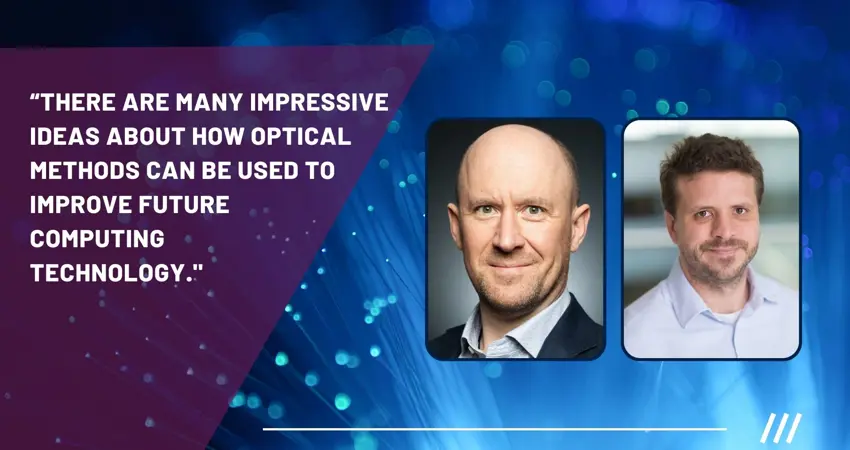29 Jul 2024
Prof Martin Booth and Dr Patrick Salter receive ARIA seed funding for optical computing project
‘Nature Computes Better’ space is funding projects to challenge assumptions, open up new research paths, and provide steps towards new capabilities

ARIA’s ‘Nature Computes Better’ opportunity space asks how we can redefine the way computers process information by exploiting principles found ubiquitously in nature.
The project, ‘Creating scalable manufacturing for optical computing’, led by Prof Martin Booth and Dr Patrick Salter, is one of 6 initial projects to be awarded funding from 270 applications across the ecosystem. The first set of R&D Creators – entrepreneurs, academics and independent researchers – are united by the desire to improve how computers process information by exploiting principles found in nature.
The project will investigate glass as a promising substrate for next-generation optical computing paradigms. Professor Booth and Dr Salter aim to address a critical aspect of technology deployment, which is the ability to manufacture at scale.
Chair of Optical and Photonic Engineering Professor Booth says, "There is an urgent need for technology advancement in this area and there are many impressive ideas about how optical methods can be used to improve future computing technology."
ARIA is an R&D funding agency created to unlock technological breakthroughs that benefit everyone. Created by an Act of Parliament, and sponsored by the Department for Science, Innovation, and Technology, ARIA funds teams of scientists and engineers to pursue research at the edge of what is scientifically and technologically possible.




